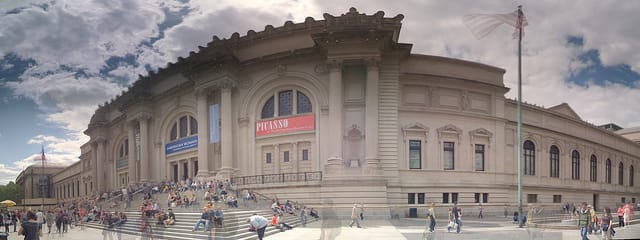Judge Rules in Favor of Met Admissions Policy
Judge Shirley Werner Kornreich of the commercial division of the New York State Supreme Court has ruled in favor of the Metropolitan Museum of Art in parts of two different lawsuits today, deeming the institution's pay-what-you-wish policy acceptable and fair.

Judge Shirley Werner Kornreich of the commercial division of the New York State Supreme Court has ruled in favor of the Metropolitan Museum of Art in parts of two different lawsuits today, deeming the institution’s pay-what-you-wish policy acceptable and fair.
Kornreich has granted the museum’s motion to dismiss parts of two different lawsuits, all of which allege that pay-what-you-wish violates a 19th-century statute (known as the 1893 Act) providing funding to the museum as well as the lease between the museum and the city.
In her decision, Kornreich writes:
…the real question is whether the goal of the 1893 Act — providing a mechanism to make access free for the public and affordable for the Museum in order to educate and foster commerce — is furthered by allowing plaintiffs to stop the Museum from charging admission, when doing so would put the Museum’s ability to provide the current level of access in jeopardy. The answer is no.
She goes on to write that, as it stands, “admission to the Museum is de facto free for all,” since visitors may pay only a penny for entry. You can read the full decision here.
The museum released a statement in response to the ruling. It says, in part:
The Met is delighted with the ruling and trusts this decision once and for all validates its longtime pay-what-you wish admissions policy — which, as the judge has declared, guarantees fairness and access for visitors of all economic means.
This comes on the heels of an amendment to the museum’s lease, which confirms the city’s approval of the Met’s current admission policy but set off much worry about whether the museum would begin charging permanent entry fees.




